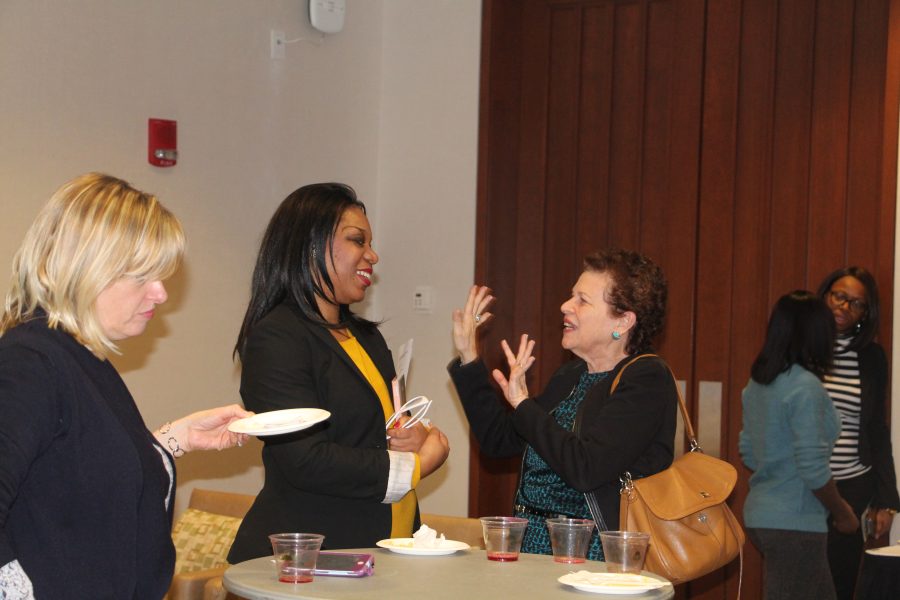On Feb. 5, there was a party for Professor Rita Kiki Edozie’s newly published book “Pan-African Rising” in the Alumni Lounge of the Campus Center. Professor Edozie is currently a graduate professor of International Relations and an Associate Dean of the McCormack School of Policy and Global Studies at the University of Massachusetts Boston. At the party, a summary of Edozie’s book was read and was followed by a question and answer session.
Edozie was inspired three years before President Trump commented about the African race and the African diaspora in January 2018. Edozie said that her goal is to “help the world understand Africa in its range of complexity, dynamism, and challenges.” In her book, she wrote how, when separated by country, “African Rising” is neoliberal and exploitative for the externalized political economy which is currently imposed on the African Continent. She argues, in her book, for “Pan-African Rising” because it would represent “a renewed trend in African internationalism—collective governance around self-determined African values.” In other words, the African countries could unite and work with each other to solve political and economic issues.
While Edozie was writing her book, she visited Nigeria to research the emerging idea of “African-Capitalism,” an economic philosophy in which private sectors in Africa would have the power to transform the African continent through long term investments, creating economic prosperity and social wealth.
Edozie also visited South Africa to look at the model of “Ubuntu Business.” This type of business values, respects, and helps the surrounding communities to eradicate obstacles to economic growth and provide community strategies to improve the growth of the African economy. Edozie used the two business models with two considerably successful African entrepreneurs from South Africa and Nigeria. According to Edozie, this “demonstrate[s] the role that culture plays in African political economy thereby giving voice, agency, and alternative modernity routes, and economic imaginaries that Africans are currently using to engage the international political economy terrain differently.”
The guests of the event were graduate students, professors of Africana studies and political science, and graduate faculty members. Kundhal Mishra, a graduate student at the UMass Boston, hoped to learn “how entrepreneurs and businesses are adopting Pan-Africanism.” George Iganoan, a UMass Boston student, believes that the Pan-Africanism would “try to get Africans to address issues and challenges on the African continent.”
Professor Edozie said she hopes that the leaders of Africa will unite together to combat their political and economic challenges.
Professor Edozie Publishes Her New Book
February 8, 2018





















































